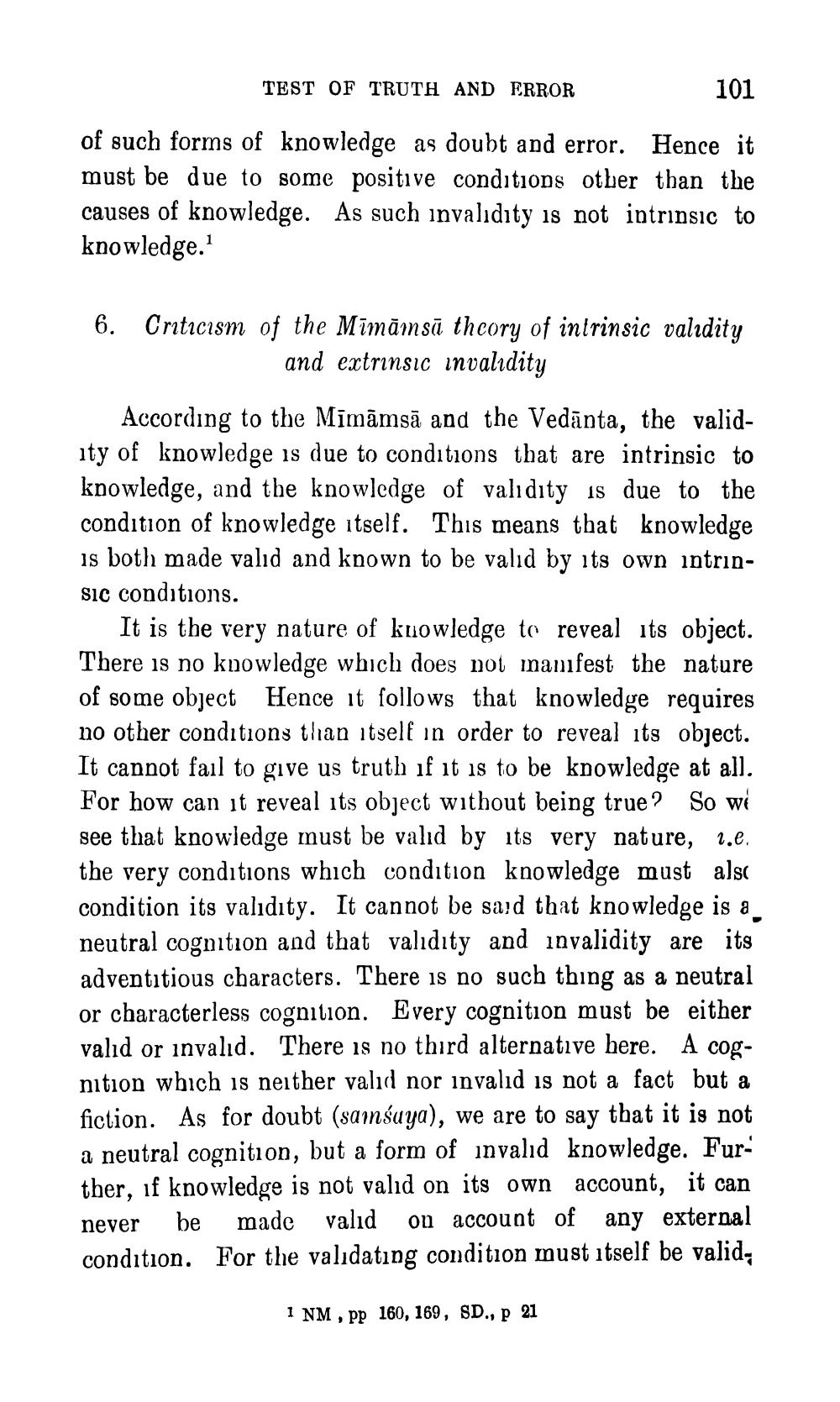________________
101
of such forms of knowledge as doubt and error. Hence it must be due to some positive conditions other than the causes of knowledge. As such invalidity is not intrinsic to knowledge.1
TEST OF TRUTH AND ERROR
6. Criticism of the Mimamsa theory of intrinsic validity and extrinsic invalidity
According to the Mīmāmsã and the Vedanta, the validity of knowledge is due to conditions that are intrinsic to knowledge, and the knowledge of validity is due to the condition of knowledge itself. This means that knowledge is both made valid and known to be valid by its own intrinsic conditions.
It is the very nature of knowledge to reveal its object. There is no knowledge which does not manifest the nature of some object Hence it follows that knowledge requires no other conditions than itself in order to reveal its object. It cannot fail to give us truth if it is to be knowledge at all. For how can it reveal its object without being true? So wi see that knowledge must be valid by its very nature, 1.e. the very conditions which condition knowledge must als condition its validity. It cannot be said that knowledge is a neutral cognition and that validity and invalidity are its adventitious characters. There is no such thing as a neutral or characterless cognition. Every cognition must be either valid or invalid. There is no third alternative here. A cognition which is neither valid nor invalid is not a fact but a fiction. As for doubt (samsaya), we are to say that it is not a neutral cognition, but a form of invalid knowledge. Further, if knowledge is not valid on its own account, it can be made valid on account of any external condition. For the validating condition must itself be valid,
never
1 NM, pp 160, 169, SD., p 21




